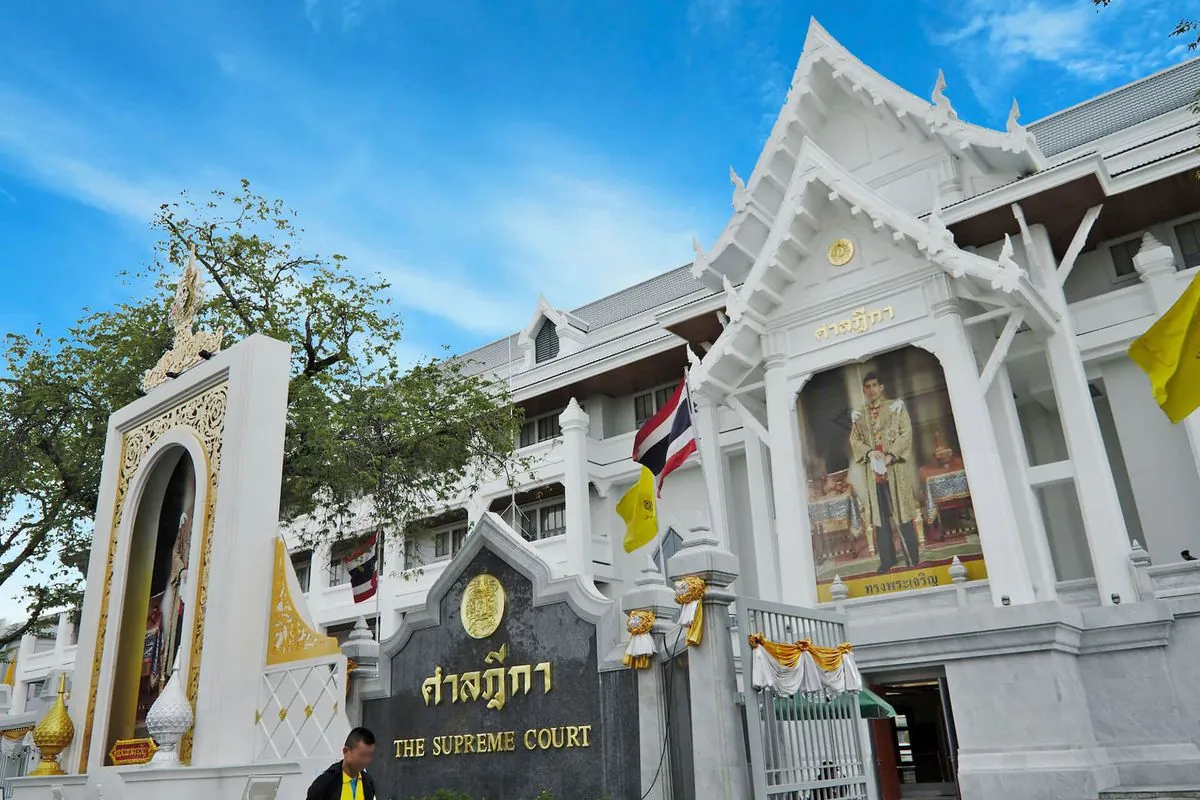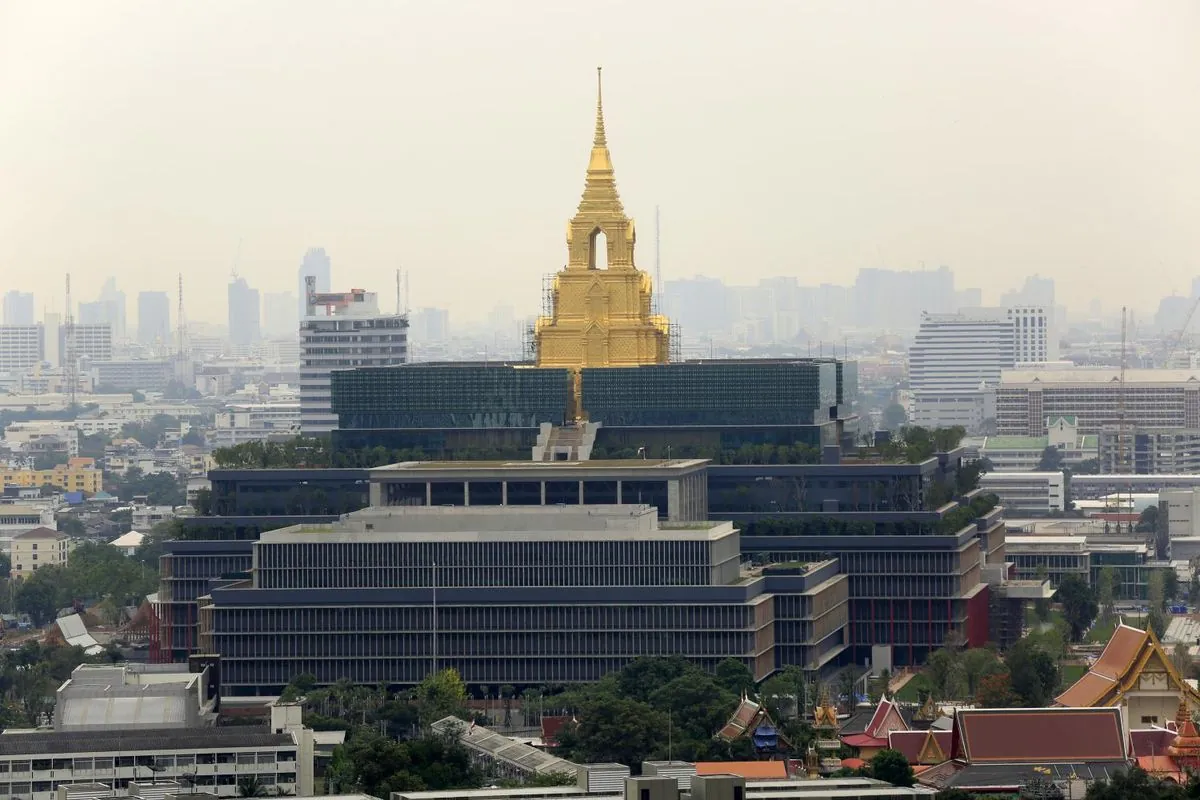Thai Court to Decide Fate of PM and Opposition Party in Crucial Rulings
Thailand's Constitutional Court set to rule on cases against PM Srettha and Move Forward party. Decisions could reshape political landscape amid ongoing tensions between establishment and populist forces.

Thailand's political landscape faces potential upheaval as the Constitutional Court prepares to deliver verdicts on two pivotal cases. These rulings, scheduled for August 7 and 14, 2024, could significantly impact the future of Prime Minister Srettha Thavisin and the popular opposition Move Forward party.
The cases underscore the persistent divisions in Thai politics, reflecting a long-standing conflict between the conservative-royalist establishment and parties with broad public support. This struggle has defined the nation's political arena for over two decades, contributing to frequent instability since 2006.
On August 7, the court will address a complaint against Move Forward, which secured 30% of house seats in the 2023 election. The party faces potential dissolution over its campaign to reform Thailand's strict lèse-majesté law, one of the world's most stringent regulations protecting the monarchy from criticism. This law is a cornerstone of Thailand's unique political system, which combines constitutional monarchy with parliamentary democracy.

If dissolved, Move Forward's 11 current and former executives, including Pita Limjaroenrat, could face decade-long bans from politics. The party's 143 lawmakers would retain their seats but likely reorganize under a new banner, echoing the events of 2020 when its predecessor, Future Forward, was disbanded.
A week later, on August 14, the court will rule on allegations against Prime Minister Srettha Thavisin. Conservative senators claim he violated the constitution by appointing Pichit Chuenban, a former lawyer briefly imprisoned in 2008, to his cabinet. This case has contributed to market uncertainty in Thailand, Southeast Asia's second-largest economy with a GDP per capita of around $7,000 USD.
Should Srettha be dismissed, his Pheu Thai Party would need to nominate a new prime ministerial candidate. Potential successors include Paetongtarn Shinawatra, daughter of influential billionaire Thaksin Shinawatra, and several current ministers.
These cases highlight the complex interplay between Thailand's judiciary, military, and elected officials. Since 1932, the country has had 20 constitutions and experienced 13 successful military coups, reflecting its tumultuous political history.
As Thailand, with its population of approximately 70 million, awaits these crucial decisions, the outcomes could reshape the nation's political landscape and impact its economic trajectory. The rulings will undoubtedly influence the ongoing struggle between the establishment forces and those seeking reform in this vibrant Southeast Asian nation.
"The court will rule on these cases in accordance with the law and the constitution, considering all relevant factors and evidence presented."


































